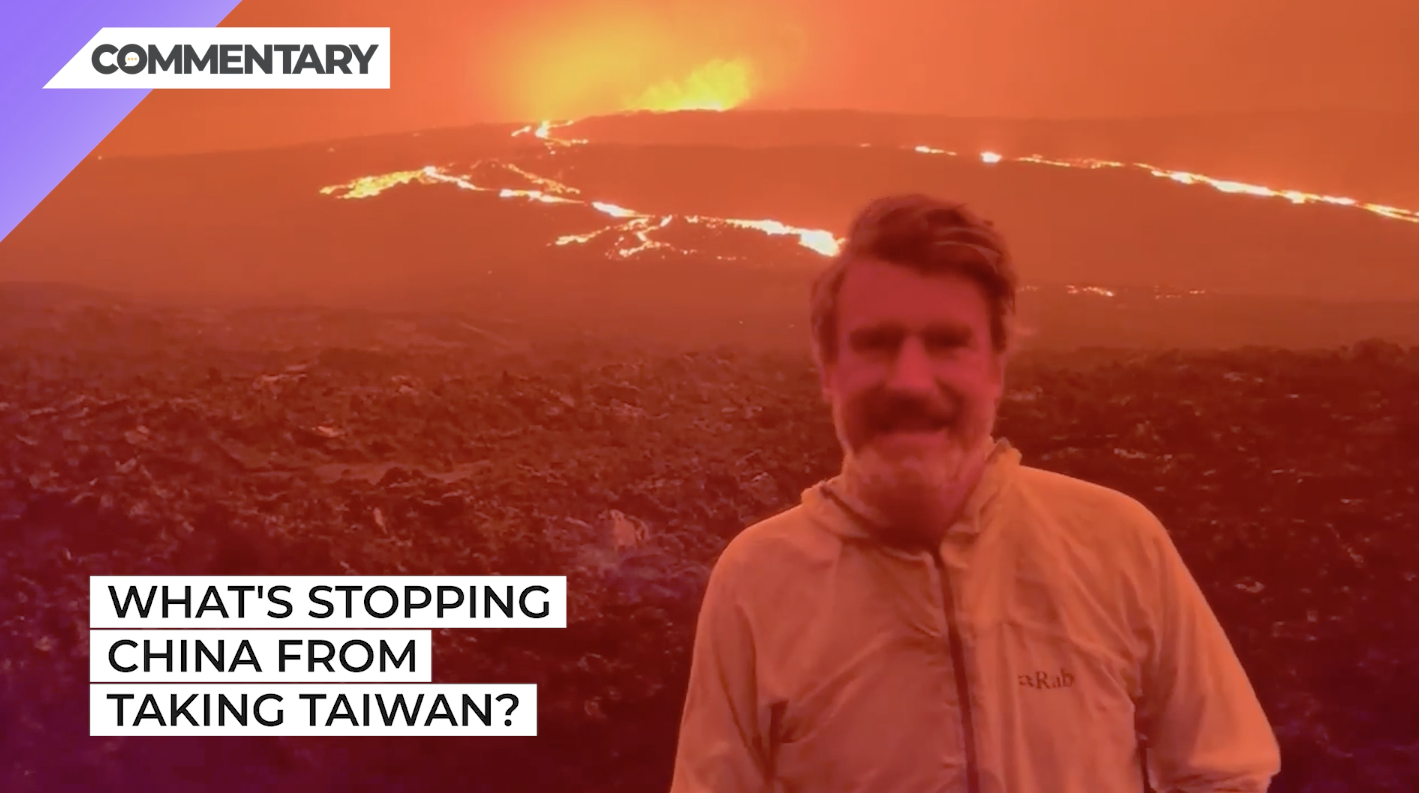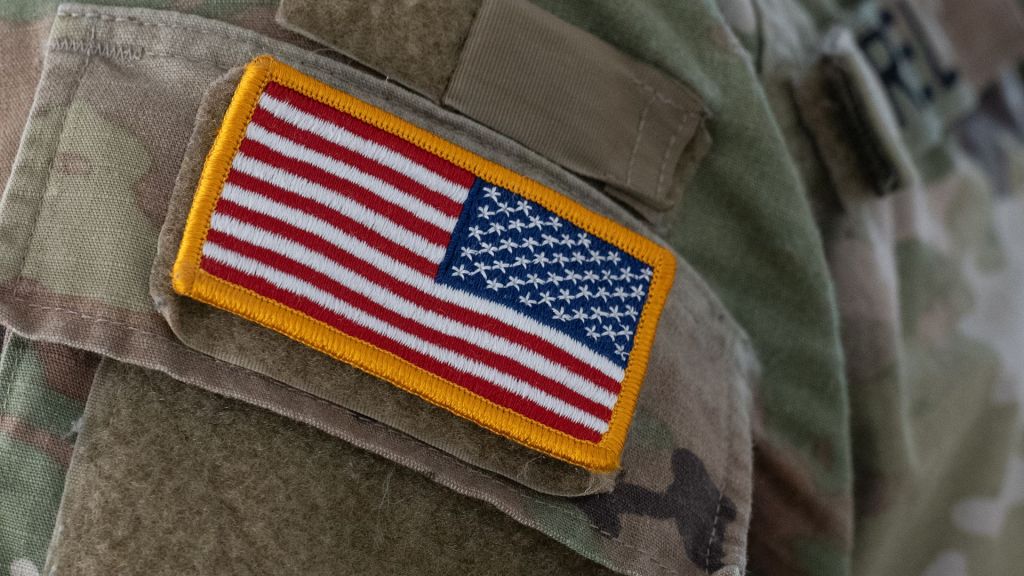
Commentary
-
Our commentary partners will help you reach your own conclusions on complex topics.
Hey everybody. I’m in Southwest Island, and the ground is on fire. So I thought this was a great time to talk about Taiwan.
Okay. There’s been a lot of talk recently with everything that’s going on in Afghanistan, about the United States not having Taiwan’s back and all that good stuff.
I really think that’s overlooking a lot of problems that Beijing has in theoretically taking the island, problems that aren’t going to go away anytime soon, and are the primary reason that Beijing hasn’t taken the island for the last 40 years. First of all, let’s say they win and they get control of that massive semiconductor industry that everybody’s all concerned about.
Well, the design for almost all the chips that are made in Taiwan come from the United States.
So the idea that the U.S. would continue to supply the intellectual property to make that happen is kind of silly.
Second, the Taiwanese, the highly skilled, freedom-loving Taiwanese. They make those chips. Yeah, you can’t do that with indentured servitude. So sure, the Chinese could theoretically seize control of the industrial plant, but then it would just be a giant paperweight.
The idea that the Taiwanese would be alone is kind of silly.
You’d probably have Japanese and American aircraft carriers to the east of the island, able to run as many sorties as they want.
So the Chinese are basically going to be sailing into a blender.
And third, the Taiwanese are no joke. Sure. There’s only about 25 million of them, but it really doesn’t matter because if the Chinese mobilize so that the Taiwanese know it’s coming, give them a week or two, and they can develop some crude nuclear devices.
Taiwan’s an advanced power. It has its own nuclear power system. It would not be a technical challenge.
So if the Chinese go by a normal military process, they probably lose Shanghai and Fujian, and there is even right risks to Beijing.
So they’d have to do it from a cold start and then just throw people in the hundreds of thousands, into fishing boats and do a mass sailing across. You’re talking about casualties, at least in the hundreds of thousands.
So the military consequences for doing this are huge.
And then again, let’s assume that they win. Well then what? The Chinese economy is completely dependent upon the import of raw materials, especially energy, and the export of finished goods as part of a supply chain to the wider world.
A war would destroy the supply chain and it would easily break up any sort of access they have to resources the world over.
So you’re talking about 70% to 80% of the oil inputs suddenly becoming unavailable.
All the United States or Japan or Vietnam or India would need to do is have a few destroyers, near the south part of the South China Sea, or the Indian Ocean, and all the energy flows from the Persian Gulf are done.
So from an economic and strategic point of view, an invasion of Taiwan is national suicide for the Chinese.
Does that mean I think it’s impossible? No.
If you’ve been following my work, the Chinese are facing a simultaneous demographic collapse with the financial crisis and a political mess. Sure, there’s a word for that. And the supply chain system that is completely vulnerable to decisions that are made by countries beyond the horizon that the Chinese can influence.
They are in their witching hour already. So the logic would be if you throw a million people at Taiwan, even if you lose, if you choose the time and place of the conflict, you can generate a nationalist impulse that might allow Chairman Xi to persist and the Chinese communist party to continue to exist in an environment of demographic financial and economic collapse. So the reason you would do it is to pick a fight so that you could choose when it happened. That’s really the only reason to do it.
So, no, I don’t find it likely.
I don’t think the American withdrawal from Afghanistan changes the strategic calculus one iota for either the Taiwanese or the Chinese or the Americans or the Japanese. It’s a null issue. If anything, I think of the American withdrawal from Afghanistan, kind of like when Reagan ordered the withdrawal from Lebanon back in the 1980s.
We forgot about it in two weeks.
And a lot more Americans died in the final weeks of our presence in Lebanon than have died in Afghanistan. It’s like 250 people versus the 13 we’ve had so far. So that’s it for me until the next time, until the next mountain.
-
Hurricane Helene hits US coast, Appalachia and beyond
Hurricane Helene hit Florida and Georgia overnight between Sept. 26 and 27 as a Category 4 hurricane, and accompanying storms will continue reaching deeper into the continental United States today. Dangerous flash flooding from the hurricane, known as storm surge, was some of the worst flooding that the Tampa Bay area has ever seen, and… -
Israel holds upper hand against Lebanon, Hezbollah and Iran
On Wednesday, Sept. 25, Hezbollah launched a ballistic missile at Tel Aviv in retaliation for Israel’s explosive pager attack that blew up devices across Lebanon. Although Israel’s defense systems intercepted the surface-to-surface missile, the attempted strike on Tel Aviv marked a significant escalation by Hezbollah. Since the siege on Gaza began, shortly after the Oct. 7, 2023,… -
The Sinaloa Cartel civil war
Fears of a civil war within the Sinaloa Cartel are growing as violence between competing factions within the cartel continues. The Mexican Army has dispatched around 600 elite troops to Sinaloa to help quell those fears, in addition to roughly 2,200 regular soldiers and National Guard. Watch the above video as Straight Arrow News contributor… -
New Ukrainian weapons hit Russia where it hurts
Ukrainian drones struck a major Russian ammunition depot, triggering a massive explosion that was captured on camera. According to the Ukrainian military, 2,000 tons of munitions had arrived at the depot before the attack. Over the past two years, Ukraine has significantly increased its domestic drone production, allowing it to scale up attacks on military… -
Weighing social costs vs. economic benefits on immigration
Global human migration is one of the defining elements of our current historical era, according to the United Nations. Migrants face both the incentives to leave — forced out by climate change, crime and corruption, extreme poverty or violence — and incentives for where to go, based on available job opportunities and so on. Migration…
Latest Stories
-
 Getty Images
Getty Images
Trump pardons former Illinois Gov. Rod Blagojevich
-
 Getty Images
Getty Images
Green Day inspires new comedy film, ‘New Year’s Rev’
-
 Getty Images
Getty Images
‘SNL’ 50th anniversary star-studded lineup announced
-
 Getty Images
Getty Images
Trump plans to attend Daytona 500 for 2nd time as president: Report
-
 Getty Images
Getty Images
Elon Musk wants to buy OpenAI for close to $100B, backed by investors
Popular Opinions
-
In addition to the facts, we believe it’s vital to hear perspectives from all sides of the political spectrum.
Latest Opinions
In addition to the facts, we believe it’s vital to hear perspectives from all sides of the political spectrum. We hope these different voices will help you reach your own conclusions.
The opinions published in this section are solely those of the contributors and do not reflect the views of Straight Arrow News.





















Latest Commentary
We know it is important to hear from a diverse range of observers on the complex topics we face and believe our commentary partners will help you reach your own conclusions.
The commentaries published in this section are solely those of the contributors and do not reflect the views of Straight Arrow News.
Dr. Frank Luntz
Pollster and Political Analyst‘A promise’: Cadets describe their journeys at West Point
‘A disturbing pick’: Americans debate Musk, Trump’s cabinet picks
‘Dysfunctional’: Americans share criticisms of Congress